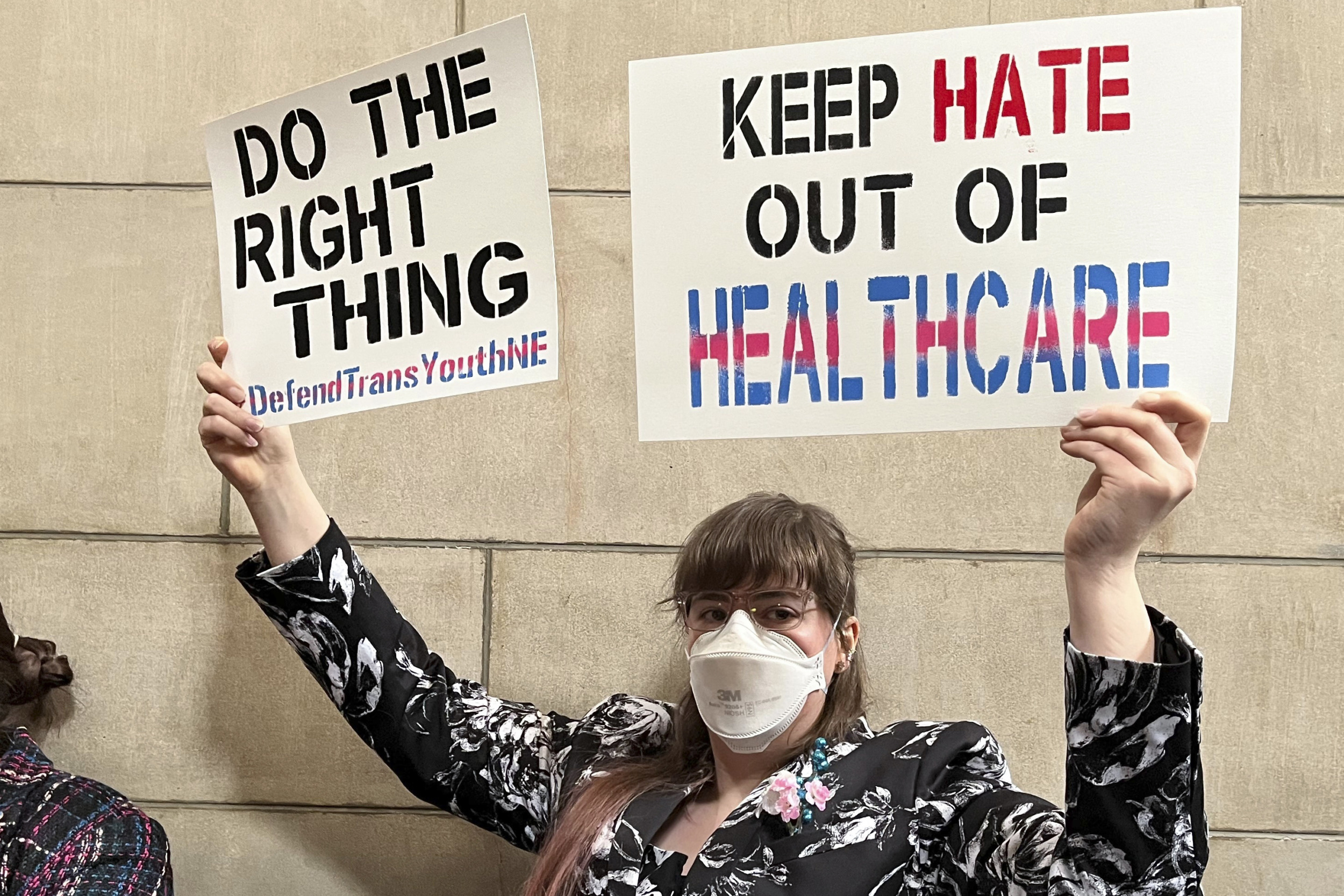If conservatives were truly concerned with the well-being of children and families, they would end the current barrage of anti-trans policies and start supporting real investments in our country’s youth and families.
For years now, conservative policymakers and interest groups have pushed anti-trans legislation under the guise of protecting the well-being of children and upholding traditional family values. In Texas Governor Gregg Abbott directed the state’s Department of Family and Protective Services to investigate reports of youth receiving any gender-affirming medical procedures which he likened to “child abuse.” Similarly, Tennessee and Oklahoma recently passed bills banning gender affirming-care for minors, again, both citing child protection. In truth, these bills pose a major threat to the health and well-being of transgender youth.

Courtesy of Jeremy Rosen
Jeremy Rosen
It’s not as if we haven’t seen this before. Conservatives have long spouted the “pro family” and “traditional family values” shibboleths to maintain a sense of power and control at the expense of those who threaten society’s cis-heteronormative patriarchal norms. And as with the anti-mixed-race marriage and anti-same-sex marriage arguments, the anti-trans arguments are missing one key thing: evidence.
The research shows no conclusive evidence that receiving gender-affirming care harms those who seek it. In fact, it’s quite the opposite. A large and growing body of research consistently shows that access to gender-affirming care is linked to significant improvements in mental health. For example, transgender youth are much more likely to experience bullying, feel unsafe, and attempt suicide (among many other negative health indicators) than their cis-gendered peers. However, transgender youth who desire and receive gender-affirming care experience at least short-term decreases in depression and suicidality compared to those who do not receive care. Likewise, transgender youth who are socially supported in their gender identity experienced lower rates of mental illness compared to those who were not.
It’s clear that negative health indicators of transgender individuals are not due to their identities but are due to the intolerance of others. That’s probably why the American Medical Association, American Psychiatric Association, and American Academy of Pediatrics have all come out against restricting these medical procedures. It appears that by restricting these procedures, conservative policymakers are causing the harm to children they claim to be protecting.
Anti-trans legislation also harms youth and families by deflecting from the myriad of real issues that genuinely affect family stability and youth development. Too many of our indicators of child well-being show that we’ve failed to truly protect and uplift our youth and families from poverty, environmental pollution, and lack of access to affordable housing and childcare, just to name a few. And metrics of many of these indicators show that youth and families of racial and ethnic minorities, especially Black, Hispanic, and Native American families disproportionately bear the brunt. Over and over again, our policymakers fail to appropriately address these issues in any long-term comprehensive way.
If lawmakers truly wanted to support youth and families, they would build on programs and policies that work. For example, the expansion of the child tax credit in 2021, which increased overall payments to families with children and dispersed them monthly, cut monthly child poverty by about 30%. Further research suggests an additional 10% reduction in childhood poverty if all eligible families had received the benefit.
The expansion of the child tax credit not only helped children but also their caregivers. Research shows that adults from families receiving the tax credit experienced a decrease in symptoms associated with anxiety and depression, with the highest reductions in adults from Black, Hispanic, and other racial and ethnic minority backgrounds. This is all to say that policies that support families rather than restrict their liberties tend to increase their physical and mental well-being. However, the child tax credit regressed to its pre-expansion value in 2022.
Our children and families thrive when they feel loved, supported, and accepted in their communities. But under stressful conditions, it can be difficult for families and communities to nurture their youth. That’s why it’s vital that our policymakers focus on interventions that remove the barriers to success and build a system of support, rather than policies that attempt to erase the identities of trans people and restrict families’ abilities to make their own decisions. So, if our policymakers truly cared about children and families in the United States, they would stop attacking trans people and start investing in affordable housing and childcare, healthy and safe environments, and the conditions that promote positive youth development and increase the well-being of families. In other words, just follow the evidence.
***
Jeremy Rosen is a student pursuing a Master of Public Policy at the Heller Schools of Social Policy and Management at Brandeis University. His concentration is child, youth, and family policy.




























